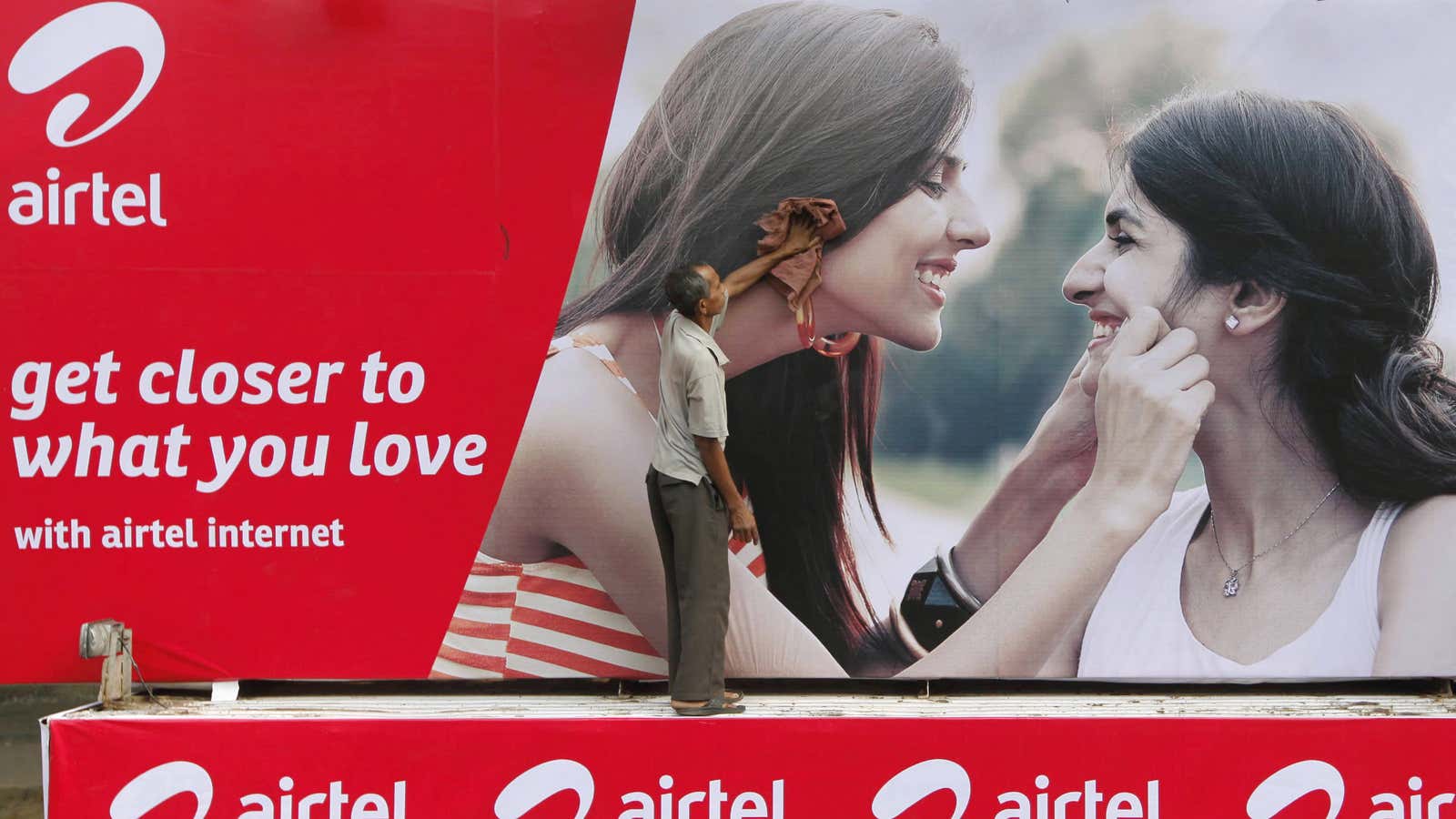Airtel, one of the world’s largest mobile networks, today announced a new way for its subscribers to get online in the 17 African countries in which it operates. Called Opera Web Pass, the service may not seem very radical: A user starts up the Opera Mini web browser in her phone and chooses from a list of subscriptions. But instead of picking how many gigabytes of data to buy, her options include a two-hour internet connection, or access just to Facebook.
For all the talk of smartphone shipments booming in emerging markets and internet cafes dying out, actual internet usage is often low. People on meagre incomes tend to be cautious about their spending, preferring prepaid connections (pdf, p.19) and small top-ups. And the traditional way of selling mobile internet access—with plans for a set number of gigabytes—means very little to people who are new to the internet.
Indeed, even people who have used the internet for years might struggle to explain a gigabyte (GB). You probably know it’s roughly a thousand megabytes, or a billion bytes. But do you know what can you do with it? How many music videos you can watch? How many emails can you send? How long can you spend on a Skype call? (Answers at the bottom.)
Airtel’s African plan draws on its experience in India, where it has been selling mobile data not as gigabytes to be racked up, but as content to be consumed. One advert shows a college student arguing with a taxi driver over one rupee ($0.016). Lacking exact change, the frustrated driver streams a popular Bollywood song on his phone and plays it for the student as compensation. The idea is to sell the content, which is easy for consumers to understand, rather than the pipeline through which it reaches them—like selling water by the shower instead of by the gallon.
Such tactics will become ever more important as services, mobile operators and handset makers look to push into parts of the world that remain unconnected. The first couple of billion internet users have been wealthy, educated and eager to consume. The next five billion will be harder to convince.
Answers:
One gigabyte covers between 20 and 30 short videos on YouTube, 20,000 to 40,000 emails, or about an hour on a video call.




